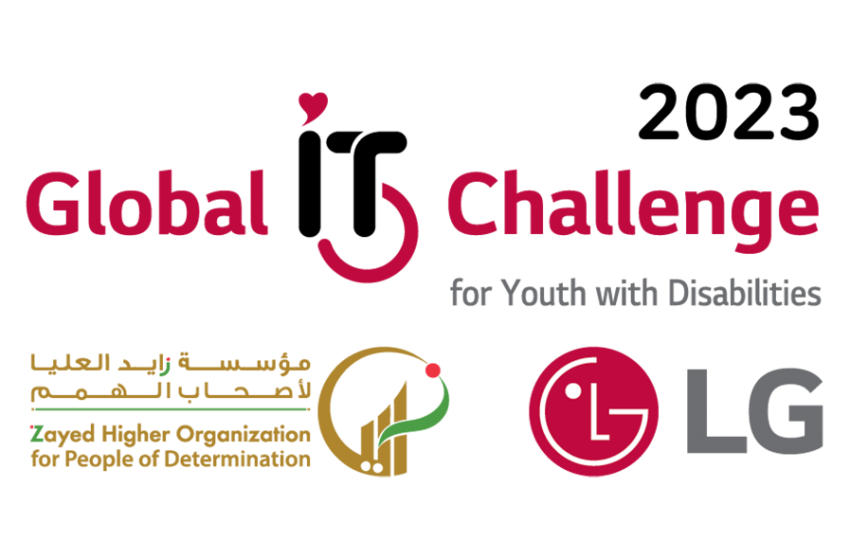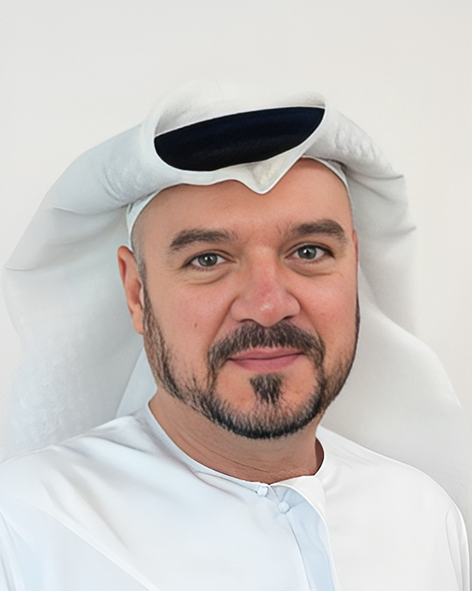Global IT Challenge for Youth with Disabilities 2023 to be held for the first time in Abu Dhabi from October 25 to 27, has seen five out of eight Emirati teams qualify for the final rounds.

Abu Dhabi, United Arab Emirates; October 22, 2023
Abu Dhabi Emirate is hosting the final round of the Global IT Challenge for Youth with Disabilities 2023 from October 25 to 27, marking the first time in the Middle East and North Africa. The event is bringing together 87 participants from 15 countries at the Abu Dhabi National Exhibition Center (ADNEC), while approximately 406 participants are joining online from 13 countries. The competition is organized by Zayed Higher Organization for People of Determination in collaboration with the Ministry of Health and Social Care in South Korea and LG Electronics.
The preliminary rounds of the competition saw the United Arab Emirates qualifying, with five out of eight UAE teams successfully securing their spot in the finals, scheduled to take place in Abu Dhabi from October 25 to 27, 2023.
This achievement was made possible through joint efforts led by Zayed Higher Organization for People of Determination, in collaboration with various local community organizations. They worked together to train and prepare student teams with disabilities to participate in the challenge, with support from government and private entities, including the College of Engineering at the University of Al Ain, the Cybersecurity Council, CyberGate for Cybersecurity, and Abu Dhabi Polytechnic University.
The students underwent intensive training programs to refine their skills at the College of Engineering labs in Abu Dhabi. Their training covered specialized areas, including challenges in creating and editing presentations using PowerPoint, Excel challenges, research and information utilization challenges to address daily life issues using the internet, an electronic creative challenge for smart cars that assessed their skills in using Scratch programming for self-driving cars, and an electronic creative challenge for the Internet of Things (IoT).
The sessions were supervised by lab engineers and focused on equipping students with the necessary practical skills to compete in the competition.

Asaad Hawas Al Sadid, Director of Project Management Office at Zayed Higher Organization for People of Determination, said, “We are pleased with the cooperation between the Zayed Higher Organization and its partners from the local community, in line with Abu Dhabi’s Strategy for People of Determination 2020-2024, which supports people with disabilities in various stages of life.”
He added that the students were successful in showcasing their capabilities during the competition, thanks to being provided with the necessary practical experience. The five UAE teams were supervised by specialized mentors and successfully qualified for the finals after presenting competitive projects related to research and information utilization addressing daily life challenges using the internet.
One of these teams presented a distinctive innovation, an effective device to help individuals with visual impairments detect obstacles using sound, vibrations, and color contrast. Another team designed an alert system for wheelchairs that issues a warning when the wheelchair encounters any incident.
Dr. Amer Qasem, Deputy President of Al Ain University in Abu Dhabi, emphasized the university’s commitment to establishing inclusive partnerships and initiatives for people with disabilities in society. He also highlighted the university’s dedication to empowering individuals with developmental disabilities and inspiring them to overcome challenges in information technology.
On this occasion, Dr. Mohammed Hamad Al Kuwaiti, Chairman of the Cybersecurity Council for the UAE government, expressed his satisfaction with the performance of UAE teams in this global competition. He noted that this achievement resulted from effective collaboration among partners, emphasizing that the participation of the Cybersecurity Council in this global event aligns with the council’s strategy to promote a cybersecurity culture. He stated that the competition aims to empower all members of society, especially young people with disabilities, to facilitate their integration into society, raise their digital awareness, and enable them to access information independently without the need for assistance.
Sardjan Babich, Chief Information Security Officer at Cyber Gate for Cybersecurity, said, “Through our strong commitment, we aim to achieve our main vision of providing a world that allows everyone to access technology. The Global IT Challenge for Youth with Disabilities continues to evolve into a prominent international competition, thanks to the significant support provided by the Zayed Higher Organization primarily. These innovative initiatives are expected to yield transformative results by attracting more individuals and institutions that share the same vision to contribute to this noble cause.”
The competition spans two days, October 25 and 26, featuring two prominent competitions on the first day: “E-Creative Smart Car,” which assesses participants’ skills in using Scratch programming for self-driving cars, and “Electronic Content,” which focuses on showcasing their creative abilities in creating and editing video clips on specific topics.
The first and second days feature four challenges aimed at evaluating skills in creating and editing presentations, assessing the professionalism in using functions and formulas, data editing according to specific standards, measuring information search skills, and using them to address daily life challenges using the internet, as well as evaluating the ability to make life easier for people with disabilities.
The Global IT Challenge for Youth with Disabilities (GITC) had its beginnings in South Korea in 1992 with the goal of reducing the digital divide for people with disabilities. Since 2011, GITC has expanded its reach to encompass youth with disabilities from around the world, with a focus on the Asia-Pacific region. The aim of the competition is to promote their participation in society by facilitating access to higher education and employment opportunities. In 2024, there are plans to further develop GITC to make it a more sustainable competition by enhancing its international reputation and ensuring the independence of participating countries.






